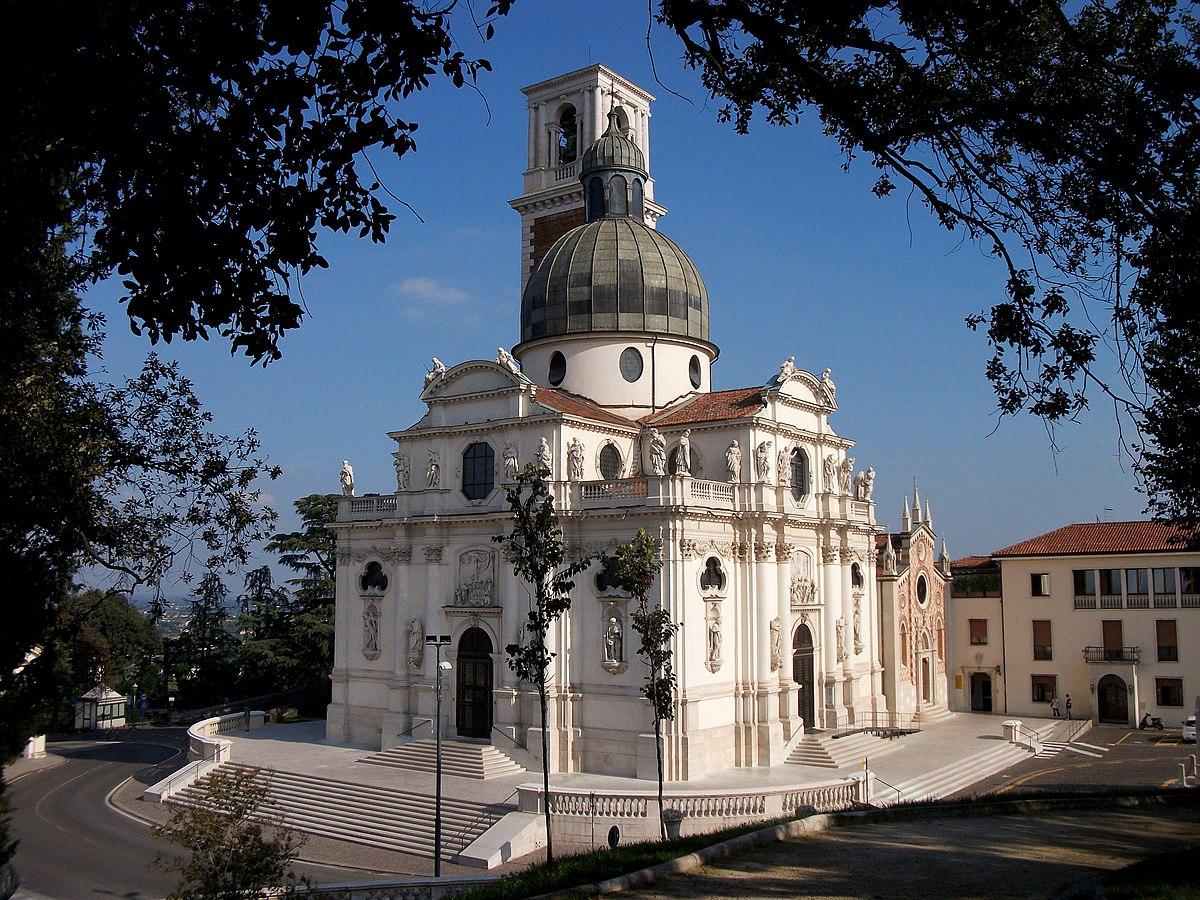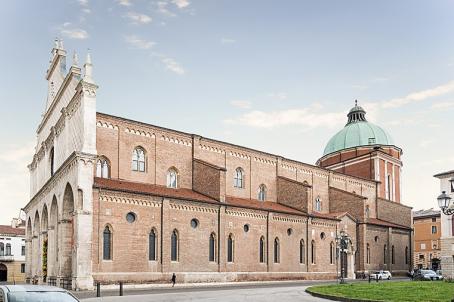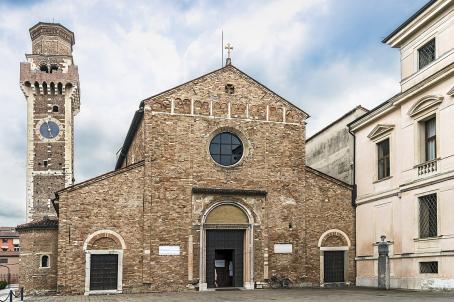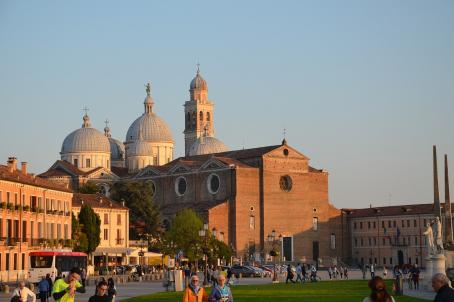Sanctuary of the Madonna di Monte Berico
The sanctuary of the Madonna di Monte Berico is the result of the combination of two churches built following plague epidemics in the city: the first church, in Gothic style, dates back to the 15th century. The second church was built in the Baroque style between 1688 and 1703. Monte Berico, on which the complex is located, attracted many pilgrims at the end of the 18th century after the development of the site. After the secularization of the annexed monastery between 1810 and 1835, the friars were able to recover the sanctuary.






